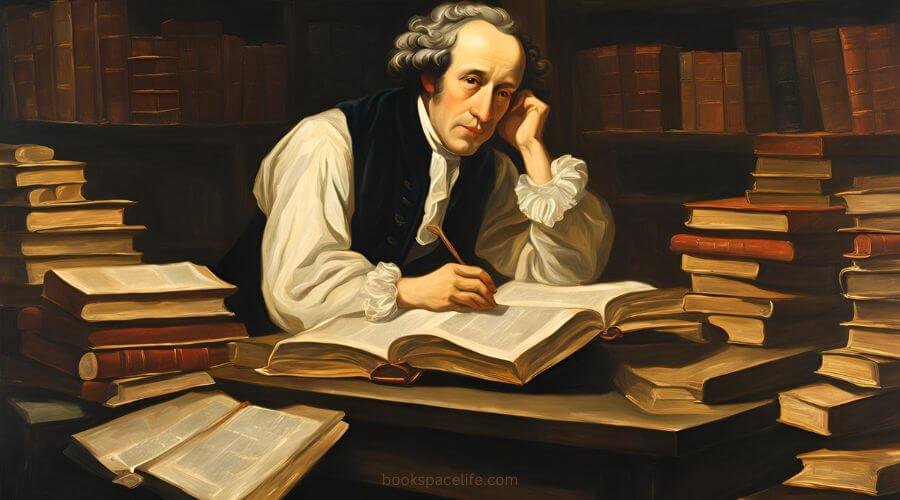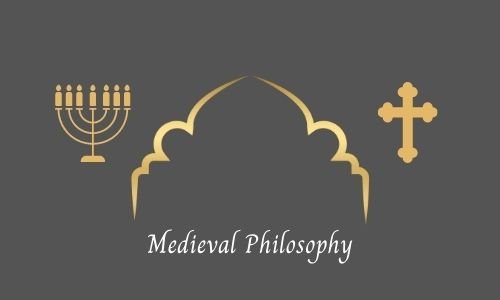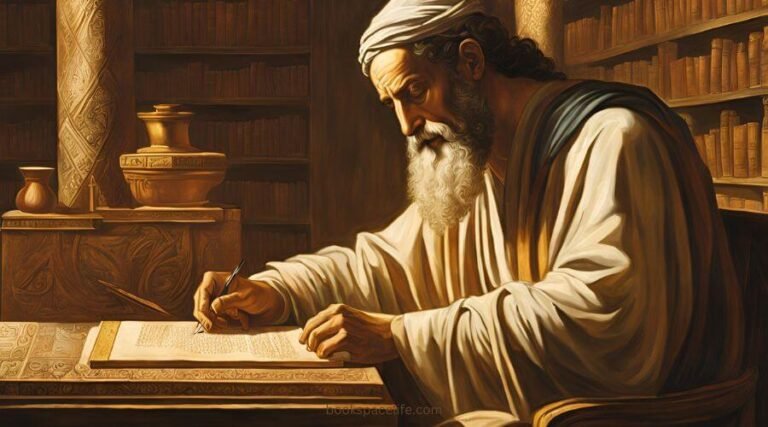Philo of Alexandria
Table of Contents
Moses Mendelssohn: A Pioneer of Jewish Enlightenment
Moses Mendelssohn (1729 –1 786 CE) was one of the most influential Jewish philosophers of the 18th century, bridging the worlds of traditional Judaism and modern European thought.
Known as the “Jewish Socrates,” Mendelssohn’s life and work left a profound mark on the German Enlightenment and paved the way for the Haskalah, the Jewish Enlightenment movement.
His commitment to both his Jewish heritage and the ideals of Enlightenment thinking made him a groundbreaking figure in religious and philosophical circles.
Here, we explore his life, philosophy, and lasting impact.

(1) Early Life and Education
Moses Mendelssohn was born on September 6, 1729, in Dessau, a small town in Germany. Raised in an Orthodox Jewish family, Mendelssohn experienced poverty but was provided with a robust Jewish education by his father, a Torah scribe.
From an early age, he exhibited an insatiable thirst for knowledge. He studied Hebrew texts rigorously, excelling in Talmudic scholarship, and was particularly influenced by the work of Maimonides, the medieval Jewish philosopher.
At the age of 14, Mendelssohn left Dessau and traveled to Berlin, seeking broader intellectual horizons.
Berlin, at the time, was a vibrant center for Enlightenment thought and offered Mendelssohn access to new ideas and educational opportunities.
Despite being barred from certain academies and institutions due to anti-Semitic restrictions, he worked diligently to learn German, Latin, Greek, and various secular subjects.
Entry into the Intellectual World
While in Berlin, Mendelssohn worked as a tutor and later as a bookkeeper for a silk manufacturer. Despite his humble position, his intellect and perseverance gained him access to influential circles.
He met Gotthold Ephraim Lessing, a prominent German writer and philosopher, in 1754. Their friendship would prove pivotal, with Lessing encouraging Mendelssohn to write and publicly engage with philosophical debates.
In 1755, Mendelssohn published his first major philosophical work, Philosophische Gespräche (Philosophical Dialogues). This publication marked his entry into Germany’s intellectual elite, and soon he was recognized as a rising star of the Enlightenment.
The work explored themes of rationalism, virtue, and human happiness, positioning Mendelssohn as a philosopher with a distinct Jewish perspective but firmly rooted in universal ideas of reason and morality.
(2) Mendelssohn’s Philosophy
Mendelssohn’s philosophy was deeply intertwined with his commitment to Judaism and his desire to see Jews integrated into European society without abandoning their faith.
His most famous work, Phaedon, or On the Immortality of the Soul (1767), was inspired by Plato’s Phaedo. In it, Mendelssohn argued for the immortality of the soul using logical reasoning rather than religious dogma.
This publication gained him immense respect across Europe and was considered a landmark contribution to Enlightenment thought.
A significant aspect of Mendelssohn’s philosophy was his approach to Judaism. In Jerusalem, or on Religious Power and Judaism (1783), Mendelssohn laid out his views on the separation of church and state, religious tolerance, and the rights of Jews within Christian-majority societies.
He argued that Judaism was not a religion that demanded blind faith but one that aligned with reason and encouraged individual interpretation.
Mendelssohn contended that Jewish law was not binding upon non-Jews and that coercion had no place in matters of faith.
Mendelssohn believed that Judaism, in its purest form, was compatible with the Enlightenment principles of reason and individual autonomy.
By portraying Judaism as a rational and moral system, he sought to dispel misconceptions and build bridges between Jewish and Christian communities.
(i) Impact on the Haskalah
Mendelssohn is often called the “father of the Haskalah,” or Jewish Enlightenment. The Haskalah encouraged Jews to engage with secular knowledge, modernize their education, and integrate into wider society while maintaining their cultural and religious identity.
Mendelssohn’s vision of Judaism, grounded in both faith and rational inquiry, inspired a generation of Jewish thinkers who sought to modernize Jewish life and challenge medieval superstitions and restrictions.
Through his writings, Mendelssohn called for Jews to learn the language and customs of their surrounding societies and contribute to cultural and intellectual life.
This transformative approach encouraged Jewish communities in Europe to engage more openly with the secular world, blending their religious heritage with modern values of tolerance, reason, and humanism.
(ii) The Translation of the Hebrew Bible
One of Mendelssohn’s most impactful projects was his translation of the Hebrew Bible into German, known as the Bi’ur (Explanation).
Completed in 1783, this translation was groundbreaking. By translating the Bible into German and including commentary, Mendelssohn made Jewish sacred texts accessible to Jews who were more fluent in German than Hebrew, helping them integrate into German culture without forsaking their religious heritage.
The Bi’ur also served as a tool for religious education, using German alongside Hebrew to teach Jewish youth both language and religious texts.
This integration of Jewish learning with the German language was a critical step in Jewish cultural adaptation within European society.
However, Mendelssohn’s translation faced opposition from some traditional Jewish leaders who feared it would erode religious values.
Despite this, his work endured, becoming a cornerstone of Jewish education and sparking similar translation efforts in other Jewish communities.
(3) Influence and Legacy
Mendelssohn’s influence extended far beyond his writings. His work inspired other Jewish intellectuals, including members of his own family, such as his grandson, the renowned composer Felix Mendelssohn.
Mendelssohn’s legacy also shaped later generations of Jewish reformers and thinkers, such as the founders of Reform Judaism, who drew on his ideas to advocate for a more flexible interpretation of Jewish law.
In the broader European context, Mendelssohn was admired as an example of a successful Jewish thinker who harmonized religious tradition with Enlightenment values.
He played a critical role in breaking down social and intellectual barriers for Jews in Germany and contributed to the gradual acceptance of Jews in European society.
(i) Criticisms and Challenges
Despite his accomplishments, Mendelssohn’s work was not without controversy. Some Christian theologians viewed his attempts at integration with suspicion, while others accused him of diluting Judaism.
Meanwhile, traditional Jewish authorities were wary of his openness to secular ideas and his emphasis on reason, fearing it would lead Jews away from their religious roots.
Mendelssohn’s commitment to both Judaism and Enlightenment ideals placed him in a delicate position.
He faced the challenge of defending his faith from both internal criticism by Jewish traditionalists and external pressure from Christians.
In many ways, Mendelssohn’s life illustrated the difficulties of being a Jew in Enlightenment Europe, yet he persevered, advocating for tolerance and understanding across cultural and religious divides.
(ii) Mendelssohn’s Death and Legacy
Moses Mendelssohn passed away on January 4, 1786, in Berlin. His legacy as a philosopher, bridge-builder, and advocate for religious tolerance remains influential.
Mendelssohn’s writings continue to be studied by philosophers, theologians, and historians interested in the intersections of religion, reason, and enlightenment thought.
Today, Mendelssohn is remembered not only for his contributions to Jewish thought but also as a figure who championed the ideals of the Enlightenment and helped shape modern conceptions of religious freedom and cultural integration.
His life and work serve as a reminder that faith and reason need not be at odds and that cultural and religious differences can coexist within a framework of mutual respect and understanding.
(4) Conclusion
Mendelssohn’s life and philosophy embody the potential for harmony between faith and reason, tradition and modernity.
Through his works and ideals, he set the stage for a more inclusive society, inspiring countless individuals to embrace diversity while remaining true to their heritage.
His contributions to Jewish thought, philosophy, and cultural integration remain relevant today, highlighting his lasting legacy as a philosopher and visionary.







